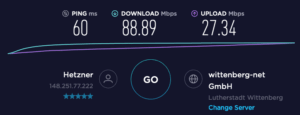
Why Does My Internet Speed Slow Down When Using a VPN–If your connection is slowing down while you are using a VPN, there are a few things you can do to fix it. Disable your firewall and antivirus. Switch to a different geographic location or disconnect and reconnect to the VPN server. You can also try restarting your modem or router. This should resolve the problem. Read on for more tips. Here are a few:
Disabling antivirus
You may be wondering how to increase your VPN speed. Fortunately, there are a few different ways to increase your internet speed. One way is to disable your antivirus software. Antivirus programs are designed to filter traffic and block malicious elements. They can also slow your connection down because they require bandwidth to update virus definitions. While antivirus isn’t a major cause of slow connection, it can have a significant impact.
Another common way to increase VPN speed is by disabling firewalls and antivirus software. Although these tools can hinder the speed of your VPN connection, disabling them will allow you to access the internet without them. While doing so, you should keep in mind that disabling these security tools will open your computer up to cyber-attacks. It is best to disable these tools only temporarily to test a VPN connection.
Disabling firewall
If you’re wondering why your internet speed is slow, it might be your firewall. Whether your software or hardware firewall is to blame, it may be interfering with your connection. Disabling your firewall can be a simple way to test your internet speed without interrupting your connection. If you don’t have a hardware firewall, disable it on your PC and run a virus scan to check for threats.
You may also be experiencing slower Internet speed when you disable your router. Routers act as IP network gateways, and as such, can overload connections. The Firewall function of routers can also cause slow Internet speeds, as it can block WiFi signals. This is why disabling your router’s Firewall may help you see what’s slowing down your connection. It’s very easy to diagnose the cause of slow internet speed.
Connecting to a VPN server in a different geographical location
A VPN is a good way to improve your internet speed, but connecting to one in a different geographical location can reduce your speeds. A VPN server in a different location slows down internet speed because your data has to travel through it. Luckily, most VPN providers let you choose the location of the server so your internet speed isn’t impacted by a different time zone.
If you suspect that your internet speed is being slowed by a VPN server in a different geographic location, you should first check the network connection on your computer and router. If you have an Ethernet cable, it should be sufficient for your needs. If your wireless connection is slow, you may want to try moving closer to the Wi-Fi router. If your Wi-Fi is still slow, you can try to upgrade it with your ISP. One of the biggest factors in internet speed is bandwidth. 10 MBPS means ten megabits per second.
Restarting your modem/router
Depending on the situation, you may need to reboot your modem/router to increase the speed. Whether you have a high-speed Internet connection or a basic internet connection, restarting your device may fix the problem. The simplest way to increase internet speed is to reboot your modem/router. Most internet service providers have tiered internet plans, and higher priced plans are generally better.
Sometimes, your router is slowing down because of the software running on it, not the hardware. A reboot will clear out the “cache” and restore the hardware-software communication. If your router is running slowly, it may be a case of conflicting software or outdated public IP address. When this happens, your modem/router combo will lose its ability to communicate. This could lead to slow internet speed.
Changing encryption protocol
One of the most common reasons why VPNs slow down your internet speed is that they use a more complicated encryption method. These methods use higher encryption levels, but these encrypt data much slower than lighter ones. To determine if this is the case, read the following article. Then, make the necessary changes. It’s important to remember that the internet is a huge network that carries billions of data packets. If one of these servers goes down, more packets are lost. And that increases latency.
To determine whether the VPN you’re using is affecting your internet speed, check your ping time. Ping time measures latency and connection delays. Connect to different servers to see which one delivers faster speeds. Once you’ve found a server that meets your requirements, compare it to your original speed results. If the difference is significant, you’ll want to switch encryption protocols. In some cases, a VPN can make your connection much faster – or slower – than it would be if it didn’t change encryption protocol. Also Read : How to Tether an Android Phone to a VPN
source https://www.gethitch.com/why-does-my-internet-speed-slow-down-when-using-a-vpn/

No comments:
Post a Comment